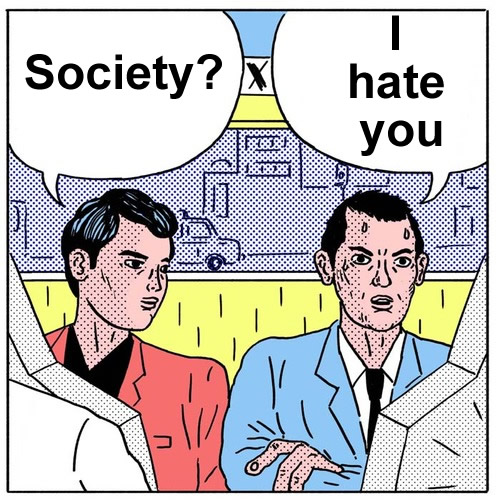This is not a complete writeup of the A Fire at the Mountain (AFM) event. I’m probably going to write one at length for a to-be-announced project I’m working on. Additionally, I recorded a lot of the event (mostly the presentations during day two) and plan on discussing the event in detail (with audio) during the next TCN Radio in the next few weeks. The tagline of this not-a-reportback is that this event was the first ever “anti-colonial and anarchist bookfair” and was a very important personal and political event for me.

In the heart of so-called Security Culture
Flagstaff has a very small radical circle and the Táala Hooghan Infoshop feels as much like an extended family project as any space I’ve ever experienced. When I compare this feeling to the the Long Haul Infoshop in my town (one of the longest running infoshops in the country), the only conclusion I can draw is that something is very broken in the land of radical (anti)politics–something that relates to the connection between radicals as secret agents, on the run from authority, and the utter loneliness of urban life.
I’ll explain by way of example. There is a local family that is intertwined closely with the infoshop. The opening ceremony to the AFM included a ceremony in honor of this family. Three generations of this family came to the front of the room while people sang for them and met them (i.e. everyone there—roughly 100 people at that moment–walked by them and shook their hand). Over the weekend anybody who was paying any attention at all could understand exactly why this family was being honored in such a way; their work and presence was clearly a central part of the life of the infoshop and event. This was a clear declaration that seems incomprehensible in anarchyland (aka the milieu or the activist ghetto).
This family has a name and relationship to our project.
I often refer to the fact that the first dozen or so times that I meet a new person in anarchyland I don’t bother to remember their name. The functional reason for this is because for a long time it was perceived as good security practice to change your name frequently. To be a ghost. To fly under the radar of the system of domination and control by never touching the ground and retreating from any desire to fly to the sun. As a result every relationship tends towards a type of limited temporality or perhaps, as it’s usually said, an unlimited flexibility. A flexibility that just happens to look like an endless sequence of singles’ nights at the bar, electrons shooting pass each other, and an extremely limited capacity to help and care for each other. Of course this flexibility is totally different from the experience of the Metropolitan rumspringa who come to the city for enough time to find themselves before returning to some version of where they came from in the first place…
Part of the appeal of anarchyland, of course, is that it allows one to create distance between ourselves and the world we despise. I’m not alone in needing to draw a clear line between myself, my choices, and the inarticulate and mediocre choices of my parents. Perhaps the loneliness of cities (and aging in anarchyland) is that the fuzzy mediocrity of where many of us came from also tends to be social and warm.
A little thing called privacy
Another part of this story is the idea that we (by some definition) are waged in a type of death struggle with a system that is encroaching on every aspect of our life. They know our name, they have numbered us, put us on lists, and are coming closer to knowing what is on our mind at any given moment. While this is a slight exaggeration, it doesn’t seem so far from what our society appears to desire and is in the process of working towards.
In this Mordoresque view where there is an eye constantly scanning the fields we exist upon, it would make sense to perceive hiding from view as a prerequisite to the fight for liberation. Perhaps it is, but not really in the way one would think. Hiding from view because we talk about dangerous things or are preparing to gear up for impending conflicts is a zero-sum game. It pretends that those who write the rules, operate the police, and persecute us follow the rules of the game and all we have to do to win, is play better.
I would say that being constrained by the rules of the game, by cops and robbers, cat and mouse, us and them, means we’ve already lost. How to break systems of logic, of rationalizing and organizing human activity, in such a way that we do not also improve them for future enclosures.
Of course I’m being abbreviated and vague. All I’m really trying to do is draw distinction between privacy as a legal category, privacy as a sort of ethical imperative, and the fact that privacy has been an incredibly successful tool to keep us separated and lost.
By no means am I pining the loss of the family which, by and large, I can’t help but see as very much part of the whole. Perhaps what I’m mourning is the limited experimentation done along these lines. In what ways can our groups experiment with meaningful, long-term relationships without emulating the conservatism or expansionist attitudes of the (American) family.
A side note about the anarchist bro
I realize this report back is nothing of the sort (hence my initial caveat). Mostly I wanted to connect this very small moment to something that I think is very important. For me, right now, it’s a central problem. But I’ll end this report with an instructive closing story.
I gave a brief report on the weekend event to a small group of anarchist friends. One of the discussions was on “Spirituality, Green Anarchy and Cultural Appropriation”. Part of that discussion explicitly named activities around the Feral Futures event in Colorado and its lack of respectfulness. I was remarking that at AFM, criticism of white people was mostly done in such a gentle and polite way that it was somewhat unbelievable to me. (This didn’t stop an white ally who was in the room from getting defensive but that’s another story) That was part of the point of the story (the politeness in the face of disrespect).
The response to the story from my friend the anarchist bro was “Are you saying that they (natives) own singing, dancing, and running around naked?” And herein lies an unbridgeable chasm.
Somewhere in the minds of (many? most?) anarchists, personal and cultural boundaries are seen as totally at odds with my freedom to do whatever in the fuck I want to do at any given moment. The idea of respect(ing others) is seen as stupid. The idea that something that is sacred to someone else is irrelevant because the only thing that sacred is I.
And this is not a dig particularly on individualists BTW. In my experience the anarchist bro can have any number of labels to describe the way in which they are right and that any questioning of that fact is authoritarian. This is characteristic of the bro who just happens to wear black.
The A Fire at the Mountain event will be hard to describe to many people. It was big-town enough to have speakers like me, Simon Ortiz, and John Zerzan, but cozy and small in every other way. I came away from the event with a great sense of responsibility for what I have to do next. This includes more intentional involvement in making the Long Haul the space I’d like it to be, getting to know the local Ohlone and Intertribal folk, and talking about the provocations of the weekend that, if treated right, will become the pivot where future anarchism in North America will perhaps be non-European (or at least non-Eurocentric).





